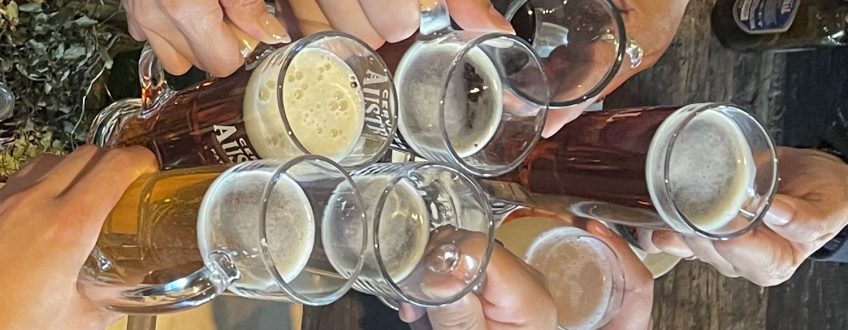Blog

Effects of Alcohol Consumption on Weight Loss
Alcohol is a staple in many cultures and social settings, from celebratory toasts to casual get-togethers. However, when it comes to alcohol consumption on weight loss, its role is often misunderstood. Beyond the obvious calorie content, alcohol can impact weight loss in several nuanced ways. Let’s delve into the relationship between alcohol and weight management.
1. Caloric Content of Alcohol
Alcohol itself is calorie-dense, providing 7 calories per gram, making it second only to fat in caloric density. This doesn’t even account for mixers and additives often present in alcoholic beverages.
Breakdown:
- Beer: 150-200 calories per pint
- Wine: 120-130 calories per 5-ounce glass
- Spirits (gin, rum, vodka, whiskey): 90-100 calories per standard shot (before mixers)
- Cocktails: Can range from 100 to 500+ calories depending on ingredients
2. Alcohol and Appetite
Several studies have shown that alcohol can stimulate appetite and reduce the feeling of fullness. This might lead to overeating during or after drinking.
Effect: Consuming alcohol before or during a meal might make you eat more than you usually would, impacting your daily caloric intake.
3. Impact on Fat Metabolism
When you consume alcohol, your body prioritizes metabolizing it over other nutrients because it cannot store alcohol. This process reduces the amount of fat your body burns for energy.
Effect: The more you drink, the less fat your body burns, and the more gets stored, impeding weight loss.
4. Alcohol and Muscle Growth
For those combining weight loss with muscle building, it’s essential to note that alcohol can interfere with muscle protein synthesis. This process is crucial for muscle repair and growth after exercise.
Effect: Regular excessive alcohol consumption can hamper muscle growth, reducing the metabolic boost gained from increased muscle mass.
5. Impact on Judgment and Willpower
Alcohol reduces inhibitions, which can lead to poorer food choices. After a few drinks, that greasy pizza or plate of nachos might seem more appealing.
Effect: Regular drinking can result in an increased intake of unhealthy foods, countering your weight loss efforts.
6. Alcohol’s Diuretic Effect
Alcohol can lead to dehydration because it acts as a diuretic. While this might seem good as you could see a drop in weight, this is mostly water weight and not actual fat loss.
Effect: Dehydration can slow metabolism and make you feel drained, reducing the likelihood of exercising and burning calories.
7. Empty Calories and Nutrient Displacement
Alcoholic beverages, especially cocktails, often contain empty calories with little to no nutritional value. Consuming a significant portion of your daily caloric intake from alcohol can displace essential nutrients.
Effect: This can lead to nutrient deficiencies, making weight loss harder and potentially compromising overall health.
8. Impact on Sleep
While alcohol might help some people fall asleep faster, it often disrupts the deeper stages of sleep. Quality sleep is crucial for recovery, hormonal balance, and even weight management.
Effect: Poor sleep can increase hunger hormones and reduce those responsible for satiety, leading to increased caloric intake.
9. Chronic Alcohol Consumption and Health Risks
Beyond the immediate impacts on weight loss, chronic excessive alcohol consumption is associated with several health issues, including liver disease, cardiovascular diseases, and certain cancers.
Effect: These health issues can further complicate the weight loss journey and overall well-being.
10. Emotional and Psychological Effects
For many, alcohol consumption is linked with emotional and psychological states. Drinking can be a way to cope with stress, sadness, or anxiety. This relationship can be problematic, especially when combined with emotional eating.
Effect: Emotional drinking can lead to overeating and choosing comfort foods, creating a cycle that’s challenging to break.
Alcohol Consumption on Weight Loss
It’s important to clarify that moderate alcohol consumption can fit into a balanced lifestyle. However, understanding alcohol consumption on weight lossis crucial. If weight loss is a primary goal, consider reducing alcohol intake, choosing lower-calorie beverages, or setting clear boundaries around consumption.
Remember, everyone’s body responds differently. It’s always a good idea to monitor how alcohol affects your weight loss progress and make adjustments accordingly. As with many aspects of health and fitness, moderation and mindfulness are key.
Comments are closed.